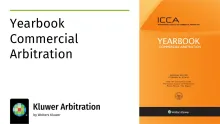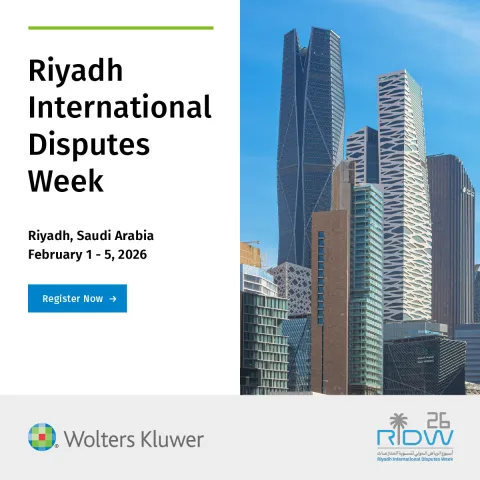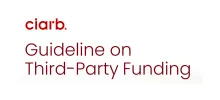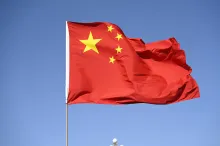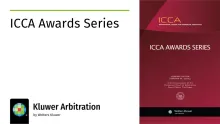The New DIS Sports Arbitration Rules 2025: A Modern Approach to Sports Dispute Resolution in Germany
September 11, 2025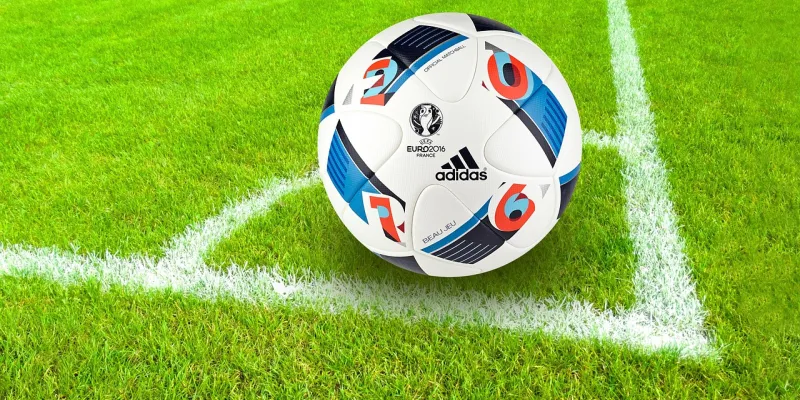
With effect from January 1, 2025, the German Institution of Arbitration (“DIS”) has introduced a thoroughly revised set of Sports Arbitration Rules (DIS-SportSchO). This marks the third version since the creation of the German Court of Arbitration for Sport in 2008 in Bonn and replaces the 2016 edition. The reform is driven by the desire to align sports arbitration procedures with the general DIS Arbitration Rules 2018, the World Anti-Doping Agency (WADA) Code, and German procedural law, while improving procedural efficiency, transparency, and athlete access to justice. This post provides for a review of this new set of rules.
A Broader Scope of Application
One of the most significant changes is the expansion of the rules' applicability. While the 2016 version required that disputes have a "connection to sport," the 2025 Rules remove this condition altogether. The rules now apply simply when parties agree to submit their dispute – whether domestic or international – to the DIS Sports Arbitration forum.
This adjustment allows for a wider range of cases to be heard before the German Sports Arbitration Court, including sponsorship and commercial contract disputes, licensing and eligibility matters within sports federations, selection and nomination conflicts, as well as club and association law disputes with sporting relevance.
This broader approach increases flexibility and recognizes that legal conflicts in sport often involve commercial and organizational dimensions beyond competition itself.
Structural and Systematic Clarity
The new DIS-SportSchO remain divided into three parts: the first part sets out the General Provisions (Articles 1–45), which form the overarching framework for all proceedings; the second part contains the Special Rules for Appeal Proceedings (Articles 46–50) and the third part of the regulation provides the Special Rules for Anti-Doping Disputes (Articles 51–60).
Internally, the rules have been reorganized for clarity. The previous paragraph structure has been replaced by articles, and provisions are now grouped thematically, reflecting best practices in international arbitration rule design.
Focus on Procedural Efficiency
A major innovation is the introduction of formal case management mechanisms, adapted from the DIS Arbitration Rules 2018. Under Article 27 DIS-SportSchO, a case management conference is now mandatory shortly after the tribunal constitution – typically within 14 days. In this session, arbitrators and parties jointly determine applicable procedural rules, set the hearing schedule, and assess which tools from Annex 3 of the DIS-SportSchO should be used to improve efficiency of the Arbitration.
Possible efficiency measures include limiting the number and size of written submissions, holding a single oral hearing, structuring the case into clearly defined procedural phases, and using digital platforms for submissions and communication.
Where no consensus is reached, the arbitral tribunal decides. This codified structure provides clarity and responsiveness – key features especially in time-sensitive sports arbitration disputes.
In addition, several key deadlines have been shortened: the time to file a statement of defense has been reduced from 45 to 21 days (Article 7.2 DIS-SportSchO), the period for challenging an arbitrator from 14 to 7 days (Article 15.2 DIS-SportSchO), and the time for issuing an award from three months to two months after the hearing (Article 37.1 DIS-SportSchO). Moreover, pursuant to Article 37.2 DIS-SportSchO, it is now possible, upon a party’s request, to transmit the operative part of the award in advance.
These changes underscore the DIS’ aim to make sports arbitration faster and more accessible without compromising procedural fairness.
Interim Relief and Emergency Arbitration
The 2025 Rules reinforce the arbitral tribunal’s authority to grant interim relief, clarifying that such relief may be granted by the tribunal itself, if already constituted, or by an emergency arbitrator, if the arbitral tribunal has not yet been constituted.
The application fee for emergency arbitration has increased from EUR 1,000 to EUR 2,500, reflecting the growing demand for structured and urgent proceedings. Crucially, Article 25.1 DIS-SportSchO now confirms that, unless the parties agree otherwise, state courts are excluded from granting interim relief – further strengthening arbitration’s role as a standalone legal forum in sport.
Balancing Confidentiality with Transparency
While the DIS maintains the confidentiality of proceedings as a core principle, the 2025 rules introduce key exceptions in favour of transparency and athlete rights. Hearings must be made public if a natural person involved in a disciplinary dispute requests it, especially relevant in anti-doping cases.
The existing option for anonymized publication of arbitral awards remains intact, but both parties must object within 30 days to prevent publication. While publication is not automatic, these provisions establish an important precedent for greater transparency and consistency in German sports arbitration jurisprudence.
Anti-Doping Disputes: Special Rules and Athlete Protections
Anti-doping cases, which make up a significant portion of proceedings before the DIS Sports Arbitration Court, receive detailed treatment in Part 3 of the DIS-SportSchO: Legal aid for athletes remains available and unchanged, ensuring that those with limited financial means continue to have access to justice. By principle, the tribunal now consists of a sole arbitrator; however, the parties may agree to a three-member panel, and an athlete may unilaterally request such a panel if the value of the claim exceeds EUR 50,000. Arbitrator selection has also been streamlined through the use of a designated arbitrator pool, from which each party proposes candidates.
If the respondent objects to the proposed arbitrator, the DIS appoints one from the arbitrator pool. This new procedure replaces older, more bureaucratic selection lists and ensures neutrality while preserving procedural efficiency.
Moreover, NADA’s (Nationale Anti Doping Agentur Deutschland) right to file arbitration is expanded. Even if it hasn’t signed the arbitration agreement, it can bring a claim when identified in the arbitration clause as a potential party, bringing the rules in line with WADA Code 2021 and NADA Code 2021.
Minor updates have also been introduced, including an extension of the delivery deadline for awards from 14 to 21 days and the addition of a new, clearly titled provision (Article 60 DIS-SportSchO) on appeals to the Court of Arbitration for Sport (CAS).
New Fee Structure: Predictable and Affordable
The cost regulations have also been completely restructured in line with the 2018 DIS Arbitration Rules. Arbitrator fees now follow a graduated table based on dispute value. For lower-value disputes, especially those involving athletes, fees have been reduced.
In anti-doping cases, costs before the German Court of Arbitration for Sport remain low, with fees set at EUR 1,000 for a sole arbitrator, EUR 1,600 for the chairperson of a three-member tribunal, and a flat DIS administration fee of EUR 400 (regarding the costs see Annex 2 DIS-SportSchO). Compared to international arbitration forums such as Court of Arbitration for Sport (CAS), the DIS continues to offer an accessible and cost-effective venue for dispute resolution especially for individuals and smaller federations.
A Stronger Future for Sports Arbitration in Germany
In recent years, the number of disputes submitted to the German Court of Arbitration for Sport has declined – from 27 in 2017 to just 2 in 2021 and 5 per year in 2022 and 2023. The reform of the DIS-SportSchO aims to reverse that trend.
The 2025 DIS Sports Arbitration Rules represent a bold step toward modernization. With better-structured procedures, a clear commitment to efficiency, and thoughtful attention to athlete rights, the DIS has created a framework that is not only functional but forward-looking.
Its independence, cost transparency, and deep sports law expertise make it a valuable forum for resolving disputes in sport. If embraced by federations, clubs, and athletes, the German Court of Arbitration for Sport has the potential to reassert its relevance both nationally and internationally.
You may also like
